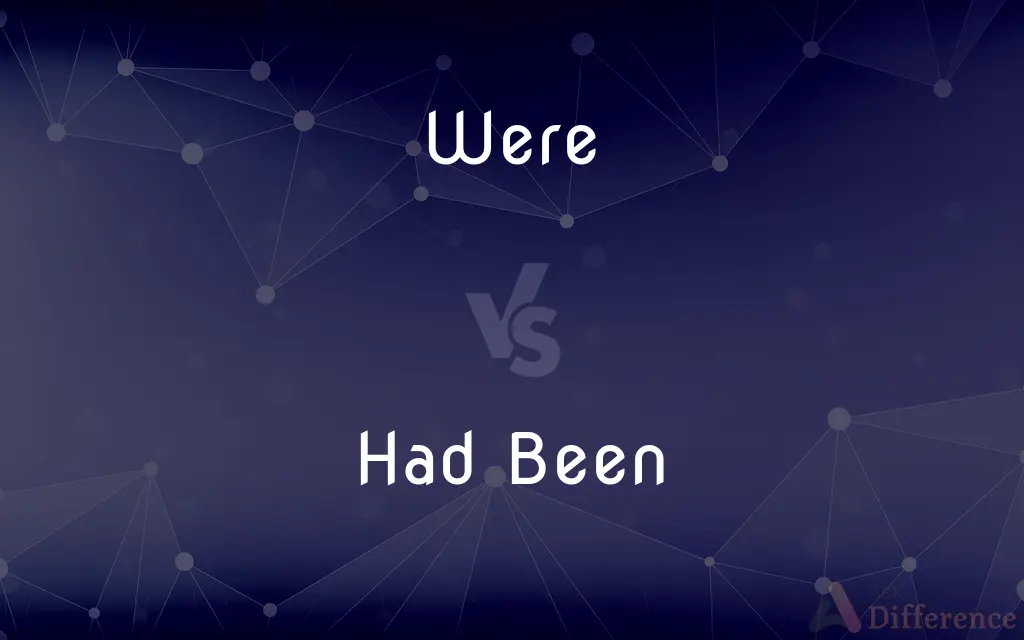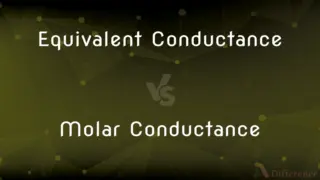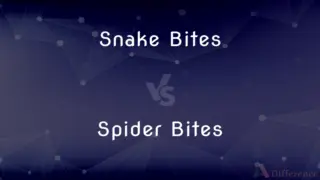Were vs. Had Been — What's the Difference?
By Tayyaba Rehman — Published on November 8, 2023
"Were" is the past tense of "be" for plural subjects, while "had been" is the past perfect form of "be," indicating an action that occurred and completed before another past action.

Difference Between Were and Had Been
Table of Contents
ADVERTISEMENT
Key Differences
Were" is a simple past tense form of the verb "be." It is specifically used for plural subjects, as well as singular second-person subjects. For instance, "They were at the park." In this sentence, "were" describes a state of being in the past. On the other hand, "had been" is the past perfect form of "be." It indicates a past action that happened before another past event. For example, "They had been at the park before it rained."
While "were" provides a straightforward narration of past events, "had been" adds a layer of temporal depth. Using "were" places the event directly in the past, while using "had been" creates a sense of an earlier past. "The kids were happy" tells us about the kids' mood in the past, but "The kids had been happy before the incident" suggests they were happy at an earlier time, but something changed that.
In terms of sentence structure, "were" is typically followed by an adjective, noun, or verb in the base form, for example, "They were excited." "Had been," meanwhile, is typically followed by the present participle or "ing" form of the verb, as in "They had been waiting for hours."
Grammatically, both "were" and "had been" have distinct purposes. "Were" is employed when talking about past habits, general past actions, or simultaneous past events. "Had been" is used when there's a need to indicate the order of past events, or when one event occurred before another in the past.
Comparison Chart
Tense
Simple Past
Past Perfect
ADVERTISEMENT
Usage
Indicates a state or action in the past
Indicates a past action occurring before another past action
Structure
Followed by an adjective, noun, or base form verb
Typically followed by the "ing" form of a verb
Examples
They were happy.
They had been playing.
Context
Direct narration of past events
Provides temporal depth or sequence of past events
Compare with Definitions
Were
Were is the past tense of "be" for plural subjects.
They were at the mall.
Had Been
Had been indicates an action that was ongoing in the past.
He had been reading when she called.
Were
Were is used with "you" in both singular and plural forms.
You were late to the meeting.
Had Been
Had been can be used with both singular and plural subjects.
She had been ill.
Were
Were can describe past habits.
When they were young, they were inseparable.
Had Been
Had been shows an action that occurred before another past action.
She had been working there before she moved.
Were
Were indicates a state or action in the past.
We were tired after the game.
Had Been
Had been suggests a sense of an earlier past.
The park had been crowded before the rain.
Were
Were can be used in conditional statements.
If I were you, I'd reconsider.
Had Been
Had been is the past perfect tense of "be."
They had been to Paris before.
Were
Second person singular and plural and first and third person plural past indicative of be.
Were
Past subjunctive of be. See Usage Notes at if, wish.
Were
Inflection of be
John, you were the only person to see him.
Were
Inflection of be
We were about to leave.
Mary and John, you were right.
They were a fine group.
They were to be the best of friends from that day on.
Were
Inflection of be
I wish that it were Sunday.
I wish that I were with you.
Were
(Northern England) be.
Were
(fandom) The collective name for any kind of person that changes into another form under certain conditions, including the werewolf.
Were
To wear. See 3d Wear.
Were
To guard; to protect.
Were
A weir. See Weir.
Were
A man.
Were
A fine for slaying a man; the money value set upon a man's life; weregild.
Every man was valued at a certain sum, which was called his were.
Were
The imperfect indicative plural, and imperfect subjunctive singular and plural, of the verb be. See Be.
Common Curiosities
Can "had been" be used with singular subjects?
Yes, "had been" can be used with both singular and plural subjects.
Can "were" and "had been" be used interchangeably?
No, they serve different grammatical functions and temporal contexts.
Can "were" be used in hypothetical situations?
Yes, for example, "If I were you..." is a common hypothetical expression.
Is "you were" grammatically correct?
Yes, "you were" is the correct past tense form of "be" for "you."
When should I avoid using "had been"?
Avoid using "had been" if there's no reference to another past event or action in the context.
Is "were" only used in the past tense?
Primarily, yes. "Were" is the past tense form of "be" for plural subjects and "you."
How does "had been" relate to the present perfect "have been"?
"Had been" is the past form of "have been," indicating an action further back in the past.
When should I use "were" in a sentence?
Use "were" for past tense descriptions with plural subjects and with the singular "you."
Which one indicates a more distant past, "were" or "had been"?
"Had been" indicates a more distant or earlier past.
What's the function of "had been"?
"Had been" indicates a past action that occurred before another past event or action.
Is "they was" correct?
No, the correct form is "they were."
What follows "had been" in a verb phrase?
Typically, the present participle or "ing" form of a verb follows "had been."
Can I use "were" to describe a past habit?
Yes, for instance, "They were always late" describes a past habit.
Can "had been" start a sentence?
Yes, as in "Had been waiting for hours, he was exhausted."
How is "had been" different from "was"?
"Had been" is past perfect and suggests an earlier past, while "was" is simple past tense for singular subjects.
Share Your Discovery

Previous Comparison
Equivalent Conductance vs. Molar Conductance
Next Comparison
Snake Bites vs. Spider BitesAuthor Spotlight
Written by
Tayyaba RehmanTayyaba Rehman is a distinguished writer, currently serving as a primary contributor to askdifference.com. As a researcher in semantics and etymology, Tayyaba's passion for the complexity of languages and their distinctions has found a perfect home on the platform. Tayyaba delves into the intricacies of language, distinguishing between commonly confused words and phrases, thereby providing clarity for readers worldwide.














































